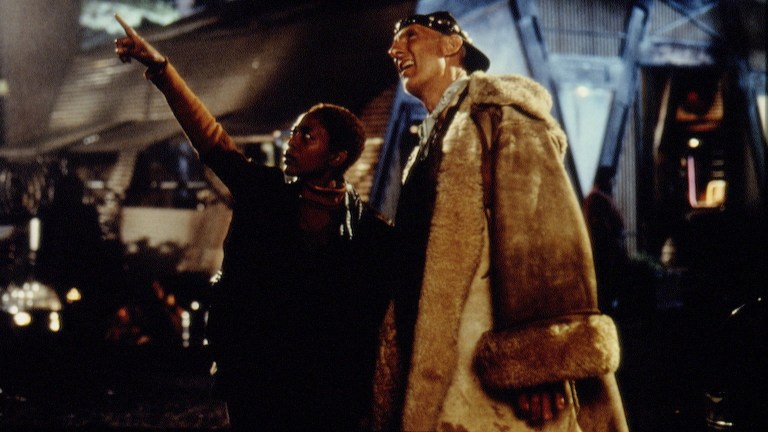Star Trek Origin Movie Timeline Rumor Makes the Film Feel Even More Unnecessary
The announced Star Trek origin movie covers well-established ground, potentially making the franchise worse in the process.

Every April 5th, Star Trek fans celebrate First Contact Day. As established in the 1996 movie Star Trek: First Contact, First Contact Day celebrates the anniversary of Vulcans establishing contact with humans, after the latter launches their first warp-capable vehicle. From that moment, humanity took its first steps into the wider galaxy, establishing Starfleet and then exploring the cosmos, as documented in the prequel series Star Trek: Enterprise.
But apparently First Contact and Enterprise weren’t enough to tell that Star Trek origin story. According to a report by THR, the first film in production will be an origin film “set decades before the events of the 2009 movie that was directed J.J. Abrams, likely around modern times,” and dealing with “the creation of Starfleet and humankind’s first contact with alien life.”
At best, such an origin story is repetitive and unnecessary. At worst, it misses the entire point of Star Trek.
Timidly Going Where Trek Has Gone Before
If the rumor is true, the origin movie synopsis raises all sorts of questions about the franchise’s timeline. If the upcoming movie really is set in modern day, what about the key Trek events that set humanity on its utopian path, such as the Bell Riots in 2024 or World War III, which begins in 2026? Heck, Zefram Cochrane makes his flight in 2063, not that long from now. How will the movie take that into account?
A potential answer might be found in Strange New Worlds. The season two episode “Tomorrow and Tomorrow and Tomorrow,” in which La’an and Kirk go back to modern-day Toronto and discover the child Khan Noonien Singh, establishes that the Temporal Cold War (again, seen in Enterprise) has altered the timeline. This allows for a sliding timeline, not unlike the one used by Marvel Comics, which gives writers freedom to play around with established canon while updating the setting and time period to better reflect modern sensibilities.
On the whole, sliding timelines are a good thing. They allow writers to tell new stories that speak to our times, to let themes and concepts grow and evolve. We already saw this in “Tomorrow and Tomorrow and Tomorrow,” which let Paul Wesley show off the charms of his take on Kirk and explored La’an’s connection to her infamous ancestor.
It’s not impossible to imagine a good movie about Vulcans or Klingons in modern day America. Heck, some of the best Star Trek stories, such as Star Trek IV: The Voyage Home or the Deep Space Nine episode “Little Green Men,” do variations of that. But it’s well-trodden ground at this point, a disappointingly safe idea for Star Trek‘s return to the big screen in almost a decade.
Toward a Better Tomorrow
The few tidbits dropped so far about the film suggest something grounded, perhaps even small scale. Instead of seeking out new life and new civilizations, the movie would presumably take place in our own world. Instead of showing what could be possible if humanity overcame the evils of our time—capitalism, racism, sexism, homophobia, etc.—it would show how humans respond to the arrival of aliens while we’re still giving in to our worst impulses.
Again, this isn’t inherently a bad thing. A story linking our modern times to the future shown in Trek might be inspirational. It might remind us of the good things we once considered possible, a reframing of the doom and gloom that we experience every day. But based on what we know about this time period in the Star Trek universe, the setting could also suggest a grim ‘n gritty story.
Star Trek is utopian. It is optimistic. That might be corny now, in the age of rising fascism and unabated violence. But that’s what makes it all the more potent. We have plenty of stories that take a cynical look at humanity’s flaws, and many of them are very good. But that’s not what Trek is.
If the new origin film can tell a compelling story in the present while aiming for a utopian future, that’s fine. It may retread ground covered by First Contact and Enterprise, but even that’s okay if they find something new and worthwhile to say about the origin of Starfleet. But we’re left wondering whether this franchise will ever boldly go where no one has gone before again…
This untitled Star Trek movie is currently slated for a 2025 release.
